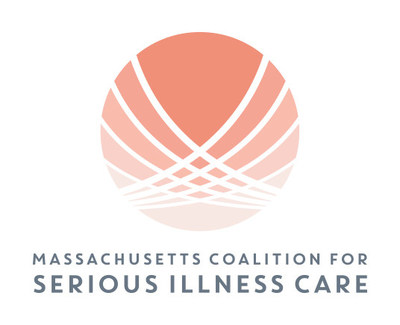BOSTON, March 23, 2021 /PRNewswire/ -- The COVID-19 pandemic has highlighted the essential role nurses play when it comes to caring for seriously ill patients and providing support to their families. Working in partnership with the Massachusetts Coalition for Serious Illness Care (the Coalition), the Massachusetts Association of Colleges of Nursing (MACN) aims to ensure that nursing students are given the foundation and competencies they'll need to provide compassionate, evidence-based palliative care over the course of serious illness and through the end-of-life. MACN today announced their unanimous decision to endorse the CARES competencies (Competencies And Recommendations for Educating Undergraduate Nursing Students), a set of 17 key competencies necessary for nurses to provide high-quality care to patients and families facing serious illness, along with the G-CARES competencies for graduate level nursing students.
The CARES competencies, originally endorsed by the American Association of Colleges of Nursing in 2016 (developed with funding from the Cambia Health Foundation), provide direction for undergraduate nursing schools to ensure that new nurses are skilled in critical palliative care skills including:
- Providing competent, compassionate, and culturally sensitive care for patients and their families at the time of diagnosis of a serious illness through the end of life.
- Demonstrating respect for the values, preferences, and goals of care of patients and their families, as well as respect for their cultural, spiritual, and other forms of diversity in the provision of palliative care services.
- Educating and communicating effectively and compassionately with patients, family, members, health care team members and the public about palliative care issues.
- Assisting the patient, family, informal caregivers, and professional colleagues to cope with and build resilience for dealing with suffering, grief, loss, and bereavement associated with serious illness.
- Implementing self-care strategies to support coping with suffering, loss, moral distress, and compassion fatigue.
The G-CARES competencies build on and expand this framework for graduate-level nursing students.
"Nurses are called to the work most often because they want to address suffering," said Diane Welsh, president of MACN. "All patients will benefit from the skill, understanding and compassion that these nursing competencies underscore."
Anna Gosline, executive director of the Coalition, believes the competencies reinforce the important role of nurses, since they often are the ones who the patients turn to for support. "Caring has always been at the core of what nurses are trained to do," Gosline noted. "Embedding these nursing competencies into their education will prepare students for the crucial conversations they will have with patients living with serious illness."
The Coalition's partnership with MACN aligns with its work ensuring that we all get care that supports what matters most to us throughout our lives and especially when facing a serious illness.
"We are grateful to MACN for this endorsement and hope that bringing these competencies to the forefront of nursing education in Massachusetts will focus attention on equipping new nurses with the critical skills they need to help patients and families coping with serious illness," said Susan Lysaght Hurley, co-chair of the Coalition's Nursing Taskforce and a nurse researcher at Care Dimensions.
The Coalition's Nursing Taskforce is now beginning to partner with the schools to assess how their current curriculum supports the CARES competencies and will share the findings in the coming months.
About the Massachusetts Coalition for Serious Illness Care
The Massachusetts Coalition for Serious Illness Care includes over 125 members organizations committed to ensuring that we all get care that supports what matters most to us throughout our lives, especially if we're seriously ill. These organizations represent physicians, nurses, hospice workers, counselors, clergy, hospital and health plan administrators, social workers, attorneys, policymakers, researchers, and other health professionals. The Coalition is funded by Blue Cross Blue Shield of Massachusetts and a variety of sponsoring organizations. To learn more, visit maseriouscare.org.
About the Massachusetts Association of Colleges of Nursing
The Massachusetts Association of Colleges of Nursing (MACN), comprised of Deans, Directors and Chairpersons of nursing programs of Baccalaureate and Higher Degree Nursing Programs in Massachusetts, serves as a leading voice and advocate for nursing education in the Commonwealth. As nurse leaders, educators and scholars, MACN members examine, assess and evaluate evidence in order to arrive at conclusions that then serve to direct improvement and change in nursing education and the nursing profession at large. To learn more, visit http://macn-nursing.org.
SOURCE Massachusetts Coalition for Serious Illness Care


